Is compost about birth or is it about death?
This is just one of the questions I have been pondering as I try to adapt to the American way of compost.
In Paris, composting your food waste has recently gotten very easy. You put it in a little brown container, walk to the biweekly market and throw it in a brown-topped garbage can that the city picks up.
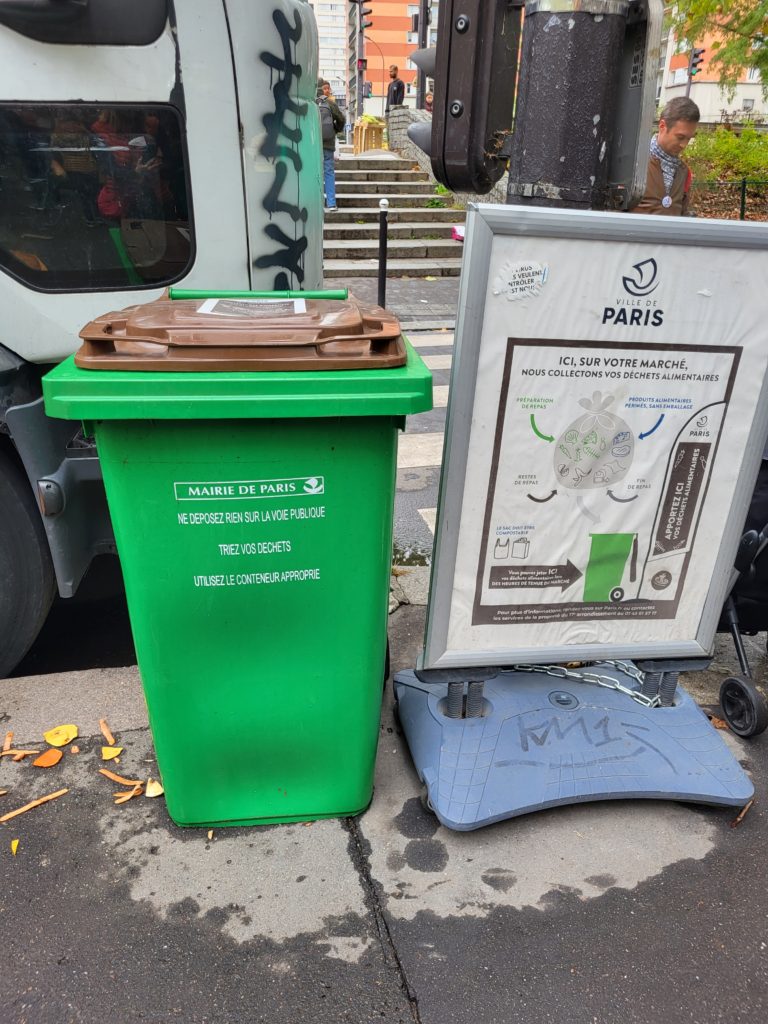
This collection went on even during the recent garbage strike. In three arrondissements, you can also deposit your food waste in a designated can in your building, just as we do with regular garbage and paper, plastic and other recyclables. A new law requires waste collection across France by 2024, though implementation is up to localities.
As this article from The Local France explains, there are a plethora of possibilities. The piece also has a nice glossary at the end, where I learned that a composter using worms to chew up the waste is a lombricomposteur. (more on worms later).
Incidentally, the French verb composter also refers to a practice that has baffled generations of tourists: Before you get on a train, you have to stick your ticket in a yellow machine and get it stamped, so that you can’t use the same ticket twice. If you don’t you could be fined. Happily, this practice is on the way out as more and more people travel with passes on their phones or badges.
There are many good reasons to compost. Even if you don’t have a garden, composting gets food garbage out of public waste systems, where burning it produces methane, or out of the public water supply. If you do garden, of course, it’s a great non-chemical fertilizer.
To me it’s more than that. There is something deeply satisfying about seeing coffee grounds and banana peels turn into food that makes gardens grow. Decay becomes birth. The discarded becomes the renewed. My twice-weekly trips to the Marché Berthier, bag of dripping goo in hand, are a joy.
So when we started spending more time in Virginia, I was delighted to see many ways to recycle food waste.
You can deposit your bag of it at the biweekly farmer’s market (except in winter).
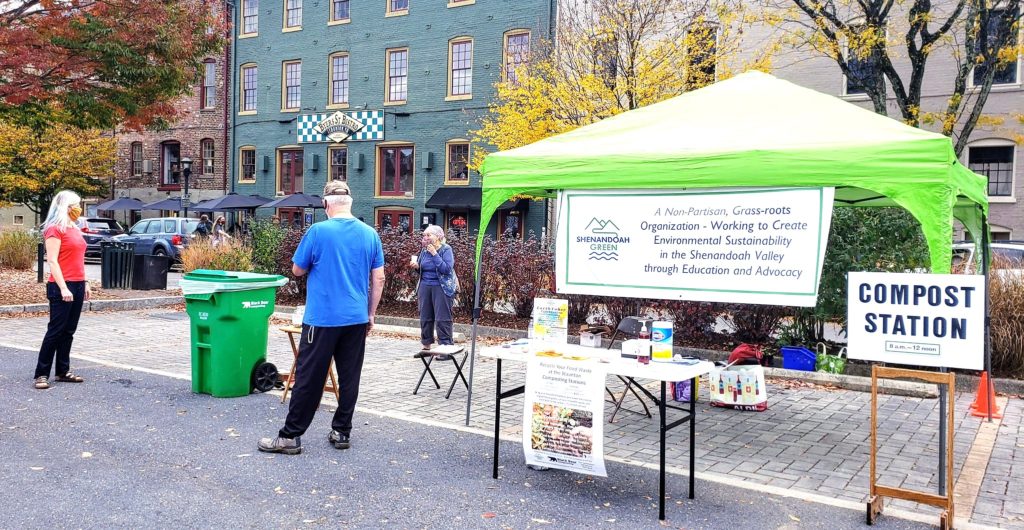
Photo: Staunton Farmer’s Market
My neighborhood also has just set up a compost collective, where you drop your stuff off in a container kindly hosted by one of the organizers.
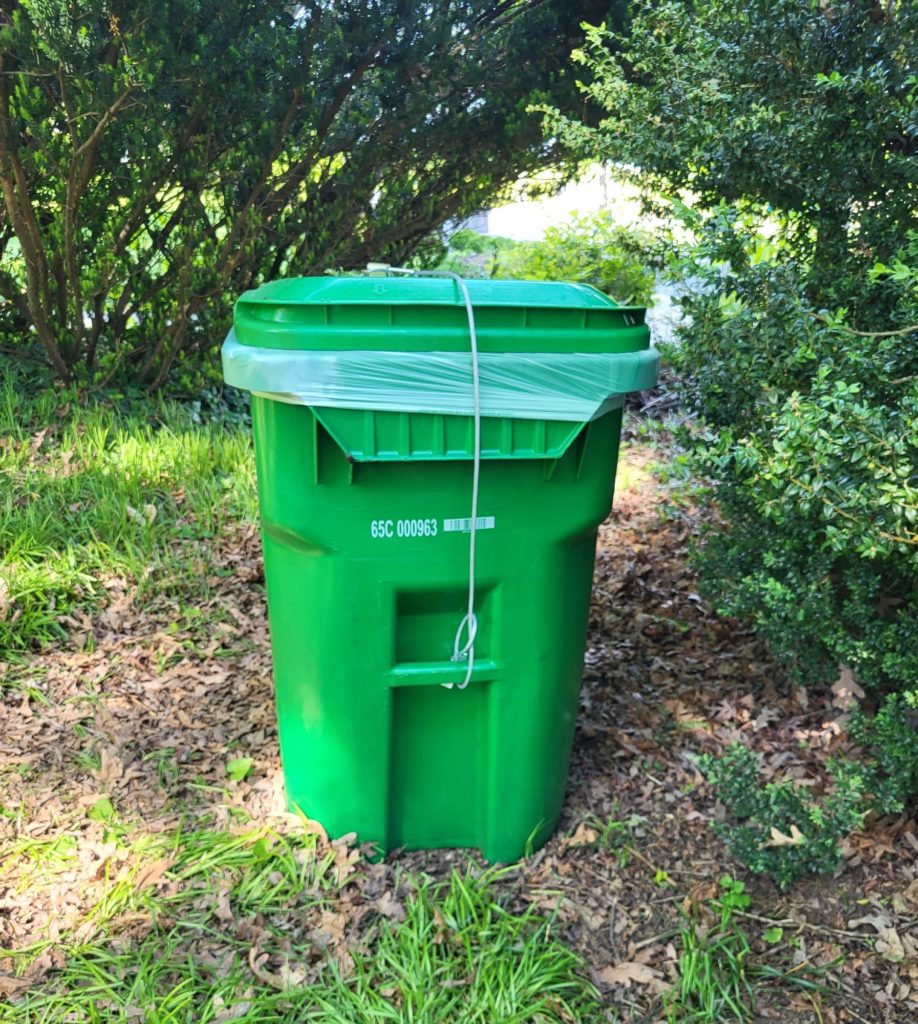
But this is America, and I figured rugged individualism was the way to go.
I started with a rotating composter, which is supposed to cook its contents faster than the regular kind. Ordered from the internet, of course.
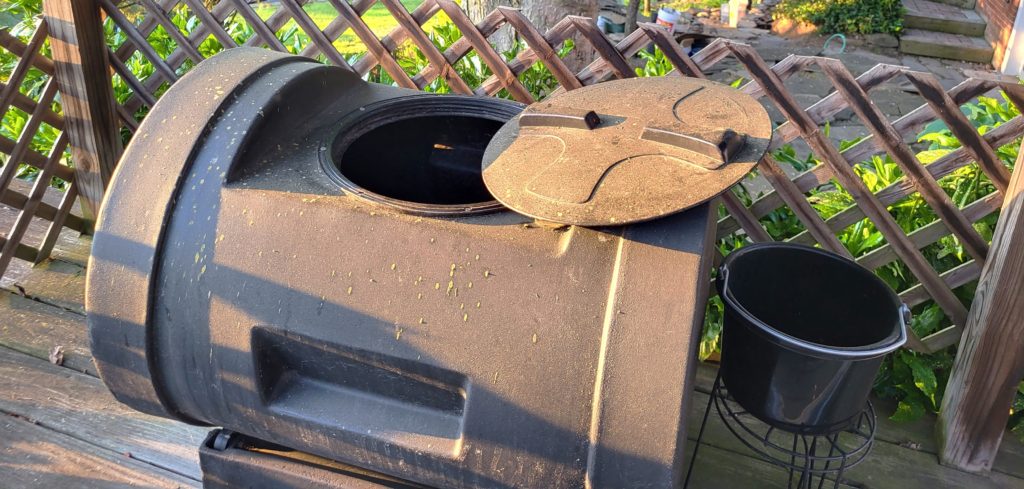
The problem with a rotating composter, I found, is that the new stuff mixes with the old stuff and nothing ever gets really finished. The solution, suggested my sister Christine, my compost guru, was to order a batch of earthworms to speed up the process.
I did. As far as I could tell, all 250 arrived alive. That was the high point. Though they dutifully began eating everything in the composter, they were soon faced with an opposing team: maggots (I will spare you the photos). Then summer came, the composter got very hot and both worms and maggots were broiled. The compost, not so much.
My next attempt was with a composter that sat right on the ground, keeping the contents cooler and adding microorganisms. You throw the food waste on top and remove the finished content from the bottom. Even though we were only part-time Virginia compost producers, it worked pretty well.
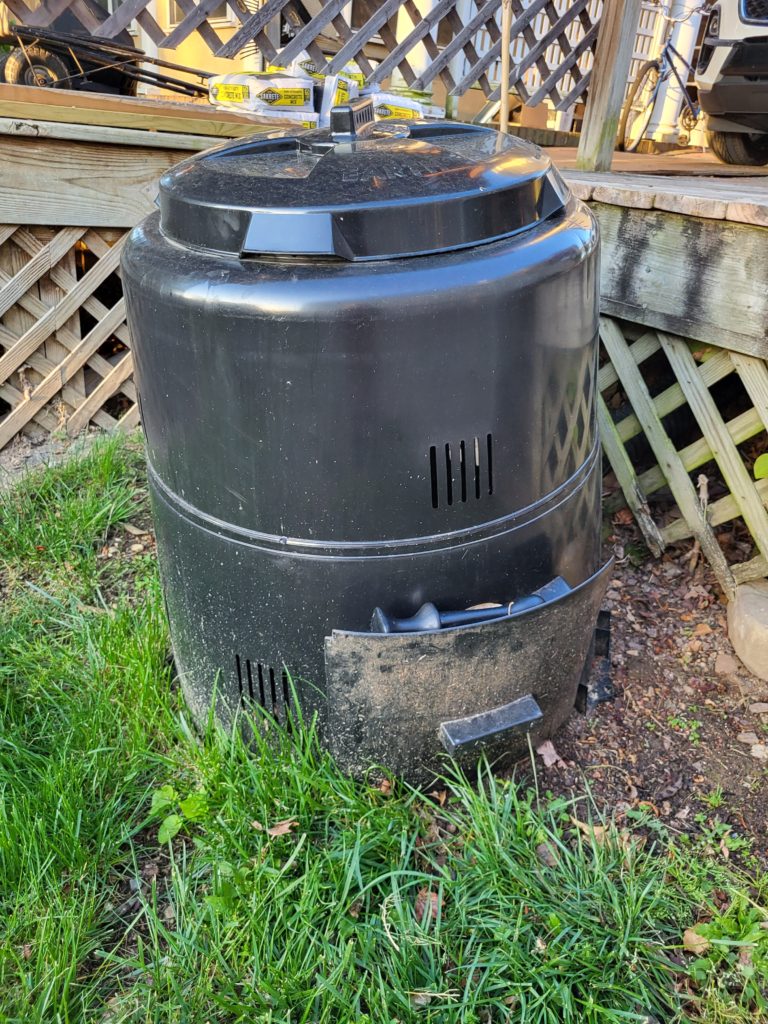
Until the maggots returned. Experts I consulted didn’t see a problem. Maggots were like worms, they pointed out, consuming the food waste faster than natural decay could.
But yuck.
Christine saved me with the best birthday present ever: An electric composter.
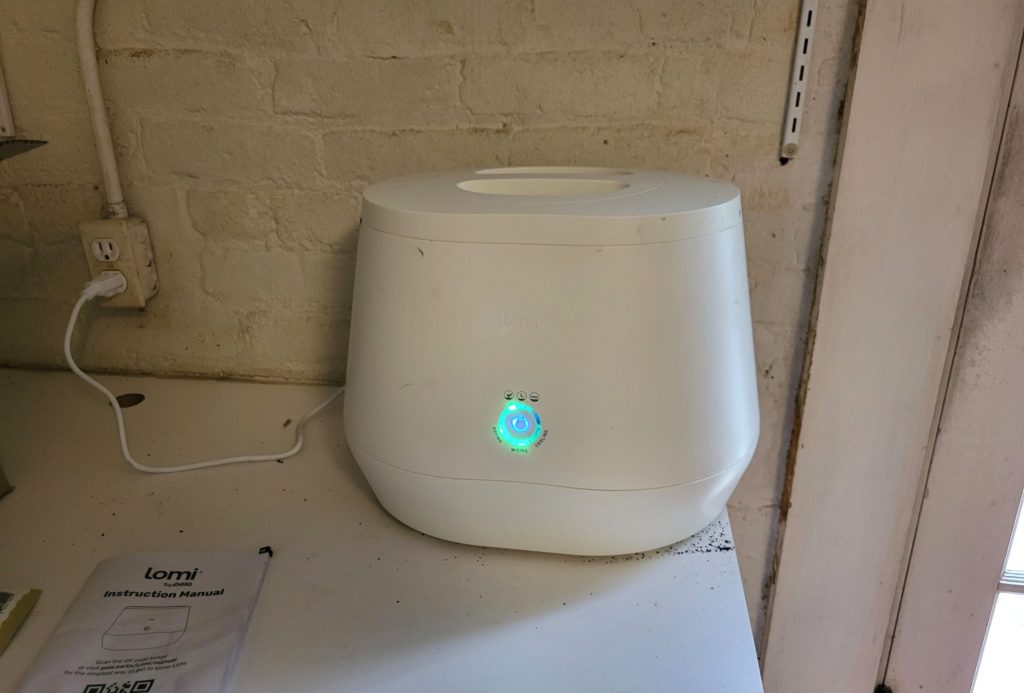
The little gizmo can take this:
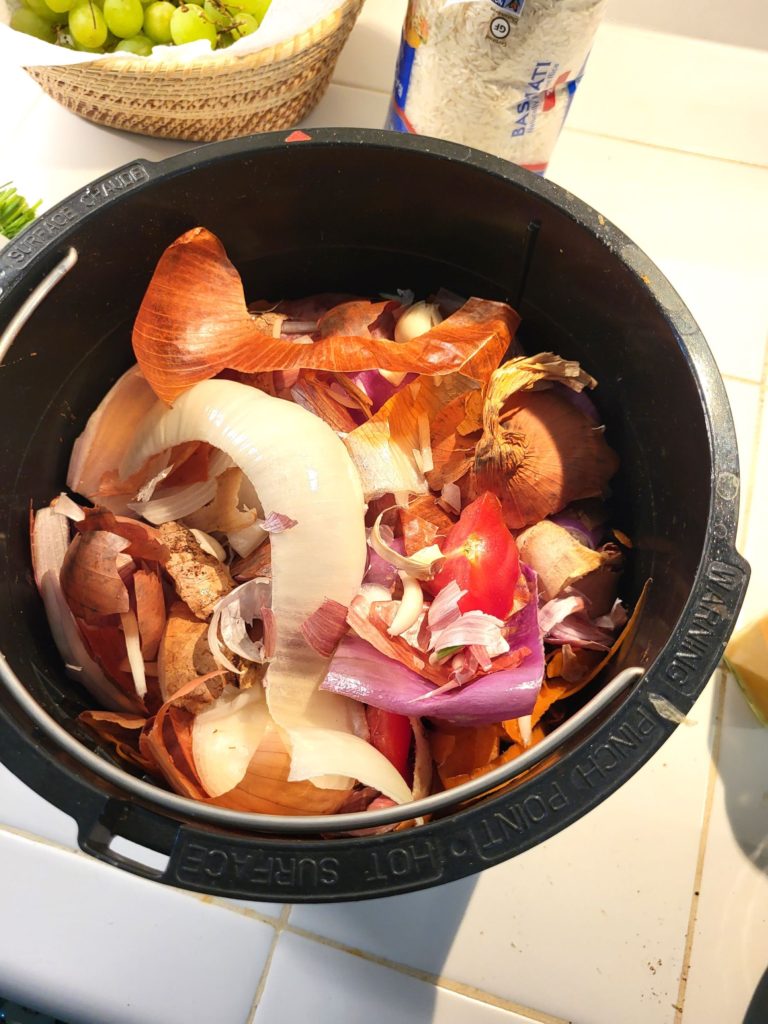
And turn it into this, i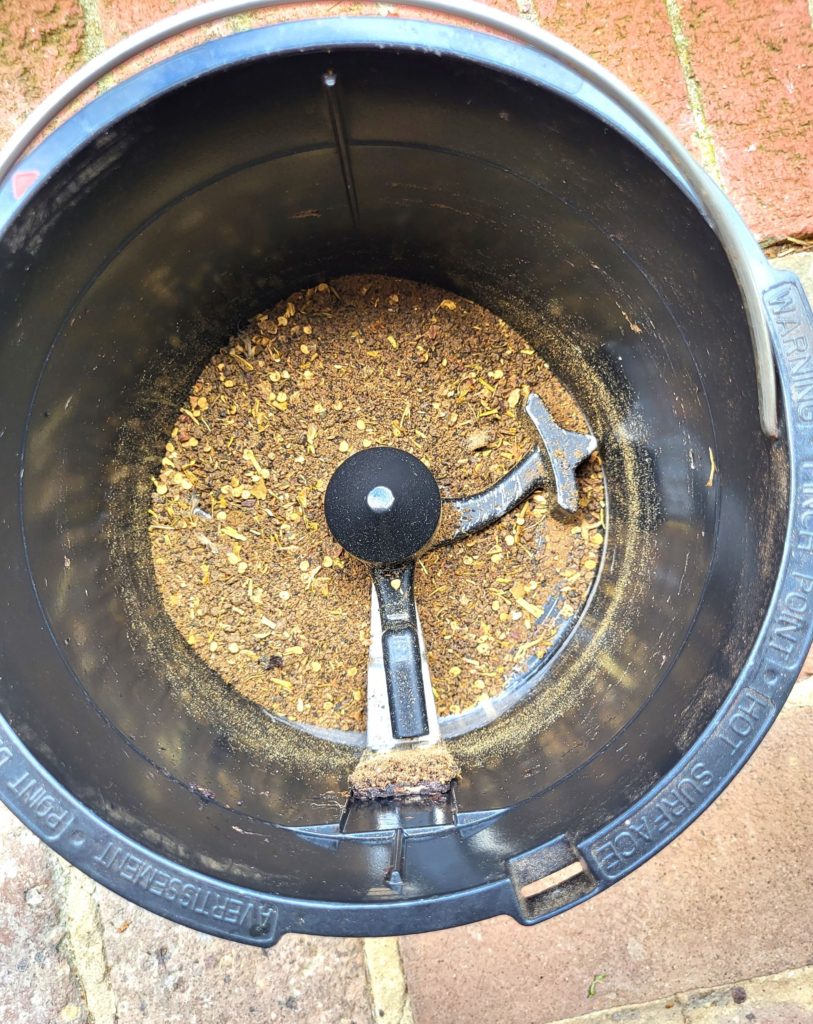 n as little as five hours (though I tend to use the overnight setting).
n as little as five hours (though I tend to use the overnight setting).
It’s a welcome diversion when things around here get stressful. And it’s enabled me to take on my next project: Growing strawberries that are as good as we can get in France. Even the nicest grocery store here has nothing but woody red objects. No such thing as gariguettes, the intensely flavorful variety that has been for sale at Paris markets since late March.
The plants are in, rooted in a soil thoroughly mixed with homemade compost.
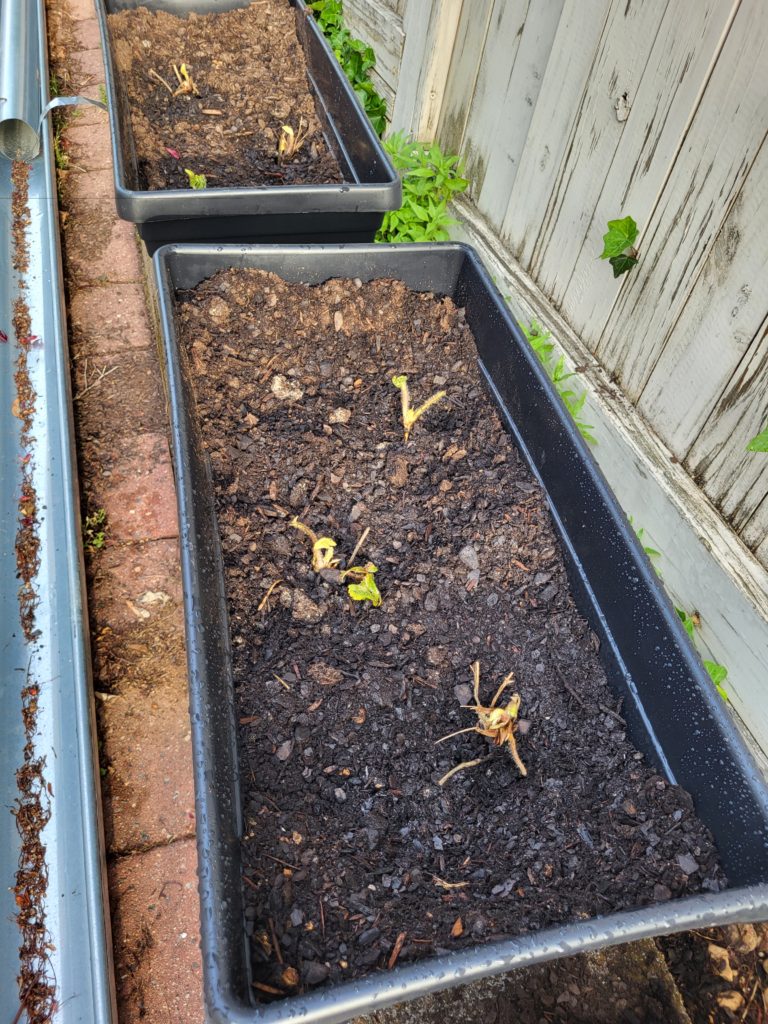
They look a little spindly at the moment, but I’m looking forward to their richly fertilized fruit in June.
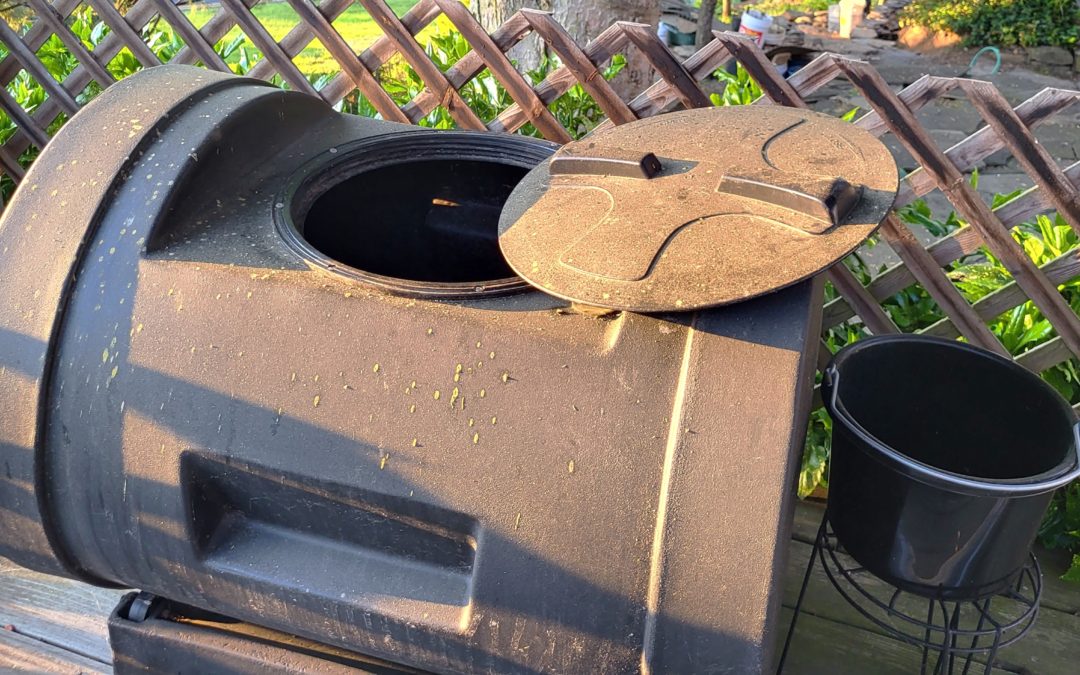
Very creative. Here in Philly we have a service that picks up our food waste every other Tuesday. We got some compost back recently; now if we only had more sun and fewer squirrels …
Picky, picky!